Home Inspector Milwaukee, WisconsinAre you looking for the best Home Inspector in Milwaukee, Wisconsin?
If you're reading this than most likely you're looking for a home inspector. Congratulations on getting your offer accepted! We service the Milwaukee and Southeastern Wisconsin area and can provide you the most information about your home. Having a home inspection is a very important part of the home buying process. Homes can look nice on the outside but then once you take a closer look, there could be big problems that could end up costing you a lot of money. Avoid expensive home problems. We do home inspections throughout Milwaukee and Southeastern Wisconsin. Top 5 Reasons to Hire Dairyland Home Inspection
We inspect the entire home from the foundation to the roof and everywhere in between. We also inspect the exterior of the home and the garage. We inspect all the major systems int he home including the HVAC, plumbing, electrical, attic, roof, foundation, structure and so much more. Our goal as your home inspector is to make sure that you are confident in what you are buying. We also provide radon testing, mold testing, thermal imaging (free), and wood destroying organism WDO termite inspections (free).
2 Comments
Home Inspector Racine, WisconsinDairyland Home Inspection in Mount Pleasant, WI
When you’re looking for a Home Inspector near Racine, Wisconsin look no further than Dairyland Home Inspection. What to look for in a home inspector: Reviews Make sure that the home inspection company you hire has good reviews. There are so many home inspectors that you have no idea who you are hiring. Dairyland Home Inspection has a 5 star rating on Google and Spectora. Our home inspection reports are thorough and provide photos and/or videos of any problems found. Reports are sent the same day as the report. Experience Make sure the home inspector you hire has the experience to do a thorough job and provide you the best information. Certifications and Training Not all home inspector certifications are the same. Choose a home inspector that has national radon certification, thermal imaging certification, InterNACHI certification as a certified professional inspector, and numerous other certifications on various home systems. Vermiculite Insulation In Older Homes May Contain AsbestosVermiculite insulation is often found in older homes during a home inspection. It was often used in attic and wall insulation. While it is an effective insulation material, some vermiculite contains asbestos. It's mined and is a naturally occurring material. Some mines had asbestos contamination and this caused the vermiculite to contain asbestos material. Pure vermiculite does not contain asbestos. Not all vermiculite contains asbestos.
Asbestos is a dangerous material that can cause lung disease and lung cancer when the asbestos fibers are breathed into the lungs. It usually takes long term exposure to cause serious health issues, although it can cause issues with minimal exposure. Asbestos becomes dangerous when asbestos fibers become airborne and can be inhaled into the lungs. Asbestos material that is not disturbed poses very low or no risk. The only way to know if vermiculite insulation in a home contains asbestos material is to have it tested. This can be expensive and time consuming. If the vermiculite is found to have asbestos it can be very costly to clean up. Since asbestos is considered a hazardous material, it requires special precautions for removal and disposal. Identifying vermiculite insulation during a home inspection can save a home buyer potential problems and significant costs. At Dairyland Home Inspection we have identified vermiculite insulation in homes on numerous occasions and saved our clients money and time preventing them from potential future problems. Dairyland Home Inspection provides home inspection services in Racine, Milwaukee, Kenosha, Waukesha, and Walworth Counties. Maintaining Exterior Wood SidingWood siding is a common exterior wall covering in Wisconsin. As a home inspector, I often see wood siding during home inspections. It is an excellent exterior material for homes. Unlike vinyl or metal siding, it is a natural material and requires regular maintenance and needs to be installed correctly to prevent deterioration.
One of the most common errors made when installing wood siding is installing it too close or at ground level. This can cause moisture damage to the area of the siding in contact with or near the ground. Water can migrate up the wood causing it to deteriorate at a rapid rate. This can result in wood rot and the need to replace the wood siding at or near ground level. Another common error is installation of wood siding less than 1 1/2 inches from the roof shingles. This is particularly important when wood siding is a a sidewall and an area where water will run at the sidewall. The water should be running against metal flashing material rather than wood siding, which can quickly deteriorate. Wood siding needs regular maintenance to prevent deterioration. Paint or stain must be regularly used on wood siding to ensure that it is protected from moisture. Moisture destroys wood that is left unprotected. It does not take long for unpainted or unstained wood to deteriorate. Nail holes need to be kept sealed to prevent moisture from getting into the wood siding. Nails often migrate out of the wood and need to be tapped back in and sealed. One of the benefits of wood siding is that if boards need to be replaced they are much easier to replace than vinyl or metal siding. Single boards or sections can be replaced relatively easily. Dairyland Home Inspection provides home inspection services in Racine, Kenosha, Milwaukee, Waukesha, Walworth, and Ozaukee Counties. Carbon Monoxide and Smoke Detectors Checked During A Home InspectionSmoke detectors and carbon monoxide detectors save lives. They should be checked and maintained regularly. Carbon monoxide is a colorless and odorless gas, which is produced by combustion from gas furnaces and water heaters.
When performing home inspections I often see what appear to be very old smoke detectors and carbon monoxide detectors in homes. As a home inspector I recommend to buyers to replace the smoke detectors and carbon monoxide detectors in a home to ensure they will work properly when needed. Pressing the alarm button on a smoke detector or carbon monoxide detector only tells you the alarm sound works when the button is pressed. It does not ensure that smoke or carbon monoxide will be detected by the unit. Always follow manufacturers instructions but the general guidelines are that smoke detectors be replaced every 10 years and carbon monoxide detectors be replaced every 5-7 years. Batteries should be replaced every 6 months to a year depending on the detector. Many people choose to replace their batteries during daylight savings. Some smoke detectors and carbon monoxide detectors have lithium long life batteries that last the lifespan of the unit and don’t need replacement, sometimes for as long as 10 years. Always ensure you keep your smoke detectors and carbon monoxide detectors up to date to prevent not being warned of immediate danger. If you get a high level of carbon monoxide in your home you will not realize it until it's too late. Dairyland Home Inspection performs home inspections in Racine, Kenosha, Milwaukee, Waukesha, Walworth, and Ozaukee Counties. White Haze/Fog on Fireplace GlassWhen conducting an inspection of a fireplace during a home inspection one thing I commonly see is white haze or fog on the fireplace gas. It can be rather unsightly as one of the benefits of having a fireplace is seeing the fire and the visual effect it has. When the fireplace glass isn't clear it can affect the visual joy of having a fireplace. It makes the fireplace much less visually appealing.
The white haze or fog on the glass is caused by the hot combustion air coming into contact with the cooler glass causing condensation on the glass. Over time the effect gets worse and in some cases the glass can be permanently etched with the white haze. In most cases the glass can be cleaned so it can be clear again. Using a cleaner like Windex is not the proper cleaner and can cause damage rather then correct the white haze on the glass. A product made specifically for cleaning fireplace glass such as White Off can clean the glass properly. Sometimes though due to the condition of the glass, it cannot be cleaned completely and the only way to have clear glass is to have it replaced. At Dairyland Home Inspection fireplaces are just one of the many areas of a home we inspect. We provide home inspection services in Racine, Kenosha, Milwaukee, Waukesha, Walworth, and Ozaukee counties. Termite Inspections in Racine, Kenosha, and MilwaukeeWood destroying organisms cost billions of dollars of damage in the United States every year. Pests such as the termite, carpenter ant, powder post beetle, carpenter bees, and fungi are some of the most common problems for wood buildings and structures. Many home mortgages and loan programs such as VA loans require termite inspections during the home buying process to ensure termites are not an issue with the home being purchased.
The most invasive of these is the subterranean termite. Termites are more prevalent in certain areas of the country and can cause major structural damage to a home. They can often go unnoticed for years, which allows them to cause significant damage. They thrive in warmer climates in the United Stated such as the South, Southeast, and Southwest. Termites can be found in every state in the United States except Alaska. Buying a home with a termite problem could be a very expensive and difficult problem to solve. Termite treatments can be extensive and involve significant expense in the thousands of dollars. If termites have been invasive in a home for some time it could also result in structural damage to a home involving repair of the wood structure. Getting a termite inspection prior to buying a home can prevent possible future problems for home buyers. Termites are ground insects that look for habitats that provide food, moisture, and shelter close to the ground: any moist place where wood meets ground. Preventing and correcting this situation can prevent termite infestation to a home. Mulch and other landscaping materials cause the soil to remain moist. You should make sure to minimize mulch around your foundation. Experts recommend mulch should be no closer than a foot from your home’s foundation. Firewood should be stacked well away from your home. You should also make sure to eliminate moisture problems in and around your home, especially in basements and crawlspaces. This can prevent your home from having termite problems. At Dairyland Home Inspection we provide termite inspections free of charge with any home inspection for our clients. We ensure our clients get the most information about their home so they can make a wise home buying decision. We serve Racine, Kenosha, Milwaukee, Waukesha, Walworth, and Ozaukee Counties. Waukesha Home Inspections & Radon TestingOur goal at Dairyland Home Inspection is to provide the very best service to our clients. Radon is the 2nd leading cause of lung cancer in the United States and high radon levels and exposure over time can increase your risk. Radon can be easily mitigated from a home to reduce the radon level to lower levels.
Radon testing involves using a continuous radon monitor for 48 hours, which measure the radon level every hour in a home. It gives a average reading for the radon level in the home. Any reading over 4.0pCi/L is a level that the EPA recommends be mitigated to prevent significant exposure to radon. Southeastern Wisconsin generally has radon levels that vary widely from high to low. It is impossible to know if a home will have a high radon level without conducting an accurate radon test. When having a radon test conducted ensure the radon tester is using calibrated testing devices and is certified to conduct residential radon testing. The Wisconsin Department of Health Services lists radon test providers who meet recognized standards and have met guidelines by the department. We are one of the few home inspection companies certified in residential radon testing. We perform radon testing in Racine, Milwaukee, Kenosha, Walworth, Waukesha, and Ozaukee Counties. Insulating Your Attic With Blown Insulation Can Save You Big MoneyOne of the most important factors to home comfort is your homes insulation. Missing or inadequate insulation is a problem commonly seen during a home inspection. Insulation prevents high energy usage saving you money. It also prevents problems with mold, condensation, and moisture intrusion problems. The cost of updating or upgrading your insulation can easily be paid back over time in energy efficiency and energy savings. Certain types of insulation like attic insulation are easy to install and very cost effective. Trying to insulate your finished walls or replacing windows for a better insulating value are much more difficult and much less cost effective.
One of the most cost effective insulation solutions is adding attic insulation. There are several types of attic insulation which include blown insulation, batt insulation, and insulation blanket type material. Blown insulation is very easy to install and almost any home owner willing to put forth a little effort can accomplish it in around 4 hours. The only supplies needed are the blown insulation and an insulation blower machine. Many stores offer insulation blower machine rental for a fee. Some stores and some insulation products such as Attic Cat insulation material provides fora free rental with a minimum purchase of insulation material. The installation of the insulation is relatively easy. It involves setting up and plugging in the machine in your yard. Then you'll need to find someone to add insulation material to the machine. Run the hose from the machine to the attic access and you'll need to blow the insulation into the attic. It's really that simple. It can be a little messy and involve some physical effort. For around $500 you can add a significant amount of insulation to your attic. Paying a professional to do the same thing for you will run $2000 or more. The cost of insulation can often be tax deductible. In Wisconsin, the recommended insulation for an attic is R49 to R60. That equates to about 16.5 to 20 inches of blown insulation in the attic. The insulation depth is measured from the attic floor. Depending on how much insulation you currently have, you would need to factor that in to the number of inches of additional insulation you would need. Websites such for Owens Corning Attic Cat and Energy Star provide information on insulation recommendations. Basement Foundation Cracks Located During Home Inspections In Racine, Kenosha, Milwaukee, Wisconsin As a home inspector one of the biggest issues I see that worries potential buyers the most is foundation problems. This is with good reason as foundation problems can be expensive to repair. Basement foundation cracks are commonly found during a home inspection. Basement foundation cracks are not always a significant problem and are often the result of many possible conditions.
Basement foundation walls are made up of many different materials such as stone, brick, masonry blocks, and poured concrete. This post focused on cracks in masonry block and poured concrete foundations. Vertical cracks, diagonal cracks, horizontal cracks, and stair step cracks are often seen during a home inspection and each has a different cause and effect. Vertical cracks that go straight up and down or within 30 degrees of vertical are very common. They are the least severe, which are often caused by a home or building settling. It is common for even new houses to have some vertical cracks. Settling is common in homes and is usually not a problem if the settling is minor and does not cause any displacement of the foundation. Settling often occurs in the few first years after a home is built. Hairline cracks are not considered a problem. The cracks can be sealed using proper materials to prevent moisture intrusion. Vertical cracks that are wide or have displacement are considered more severe and may need further evaluation. Diagonal cracks run at a 30-70 degree angle that will usually be wider at one end then the other and are often hairline sized. They are often caused by differential settling due to expansion and/or contraction of the soil. This type of issue can often be caused by too much water being deposited near the home and a lack of proper gutters and downspouts to move water away from the home. Water can cause soil at the foundation to shift resulting in the foundation cracking. Horizontal cracks run sideways and are the most serious cracks in a foundation and can signal serious problems to a homes structural integrity. They are most common in homes with masonry block foundation. Horizontal cracks are the result of soil pressure outside your foundation, and hydrostatic pressure that can cause basement foundation walls to bow. These types of cracks and foundation problems should be repaired or evaluated by a foundation contractor. Foundation problems are often the result of poor water management at the exterior of the home. Keeping water away from the homes foundation is critical to preventing foundation problems. Often solving these problems can have a positive effect on foundation problems by preventing further damage or problems. Dairyland Home Inspection inspects Racine, Milwaukee, Kenosha, Waukesha, Walworth, and Ozaukee Counties. We provide free radon testing on every home inspection. |
AuthorBob Carter is a home inspector in Mount Pleasant, Wisconsin. He is the owner of Dairyland Home Inspection. Archives
June 2021
Categories |

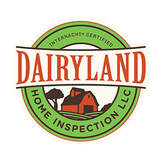
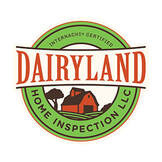
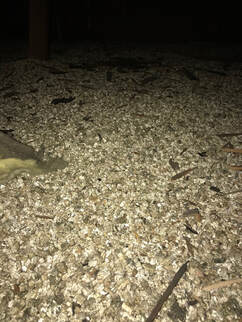
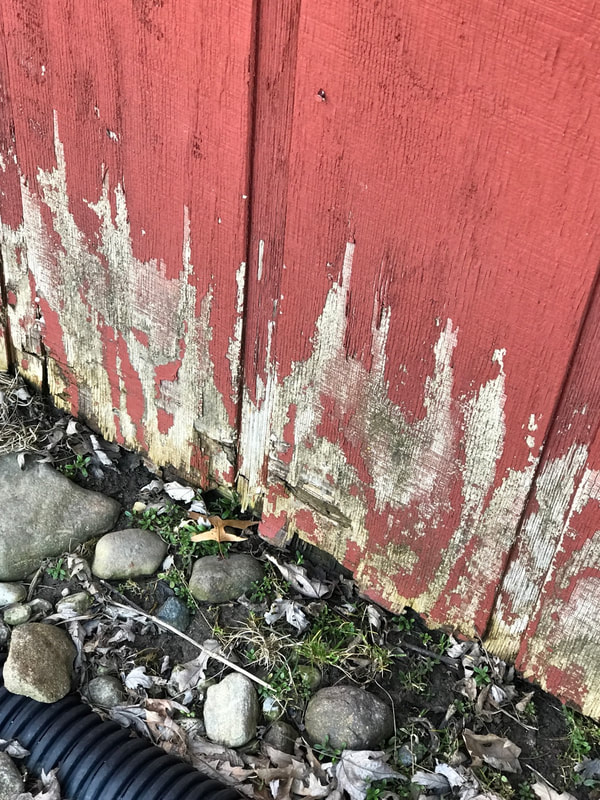
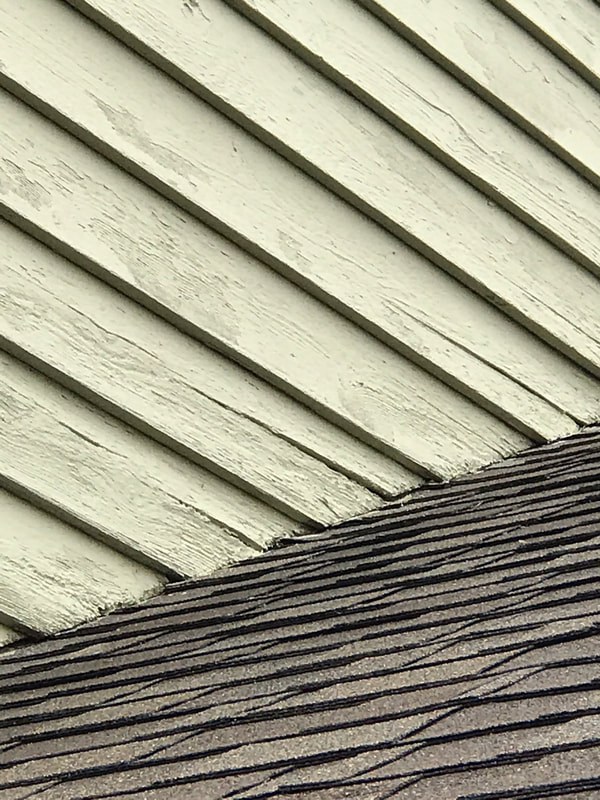
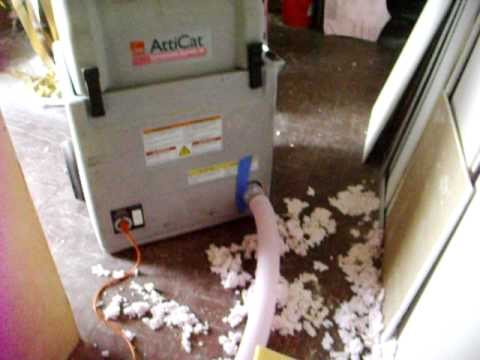
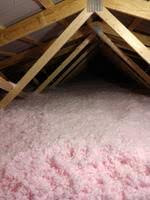
 RSS Feed
RSS Feed